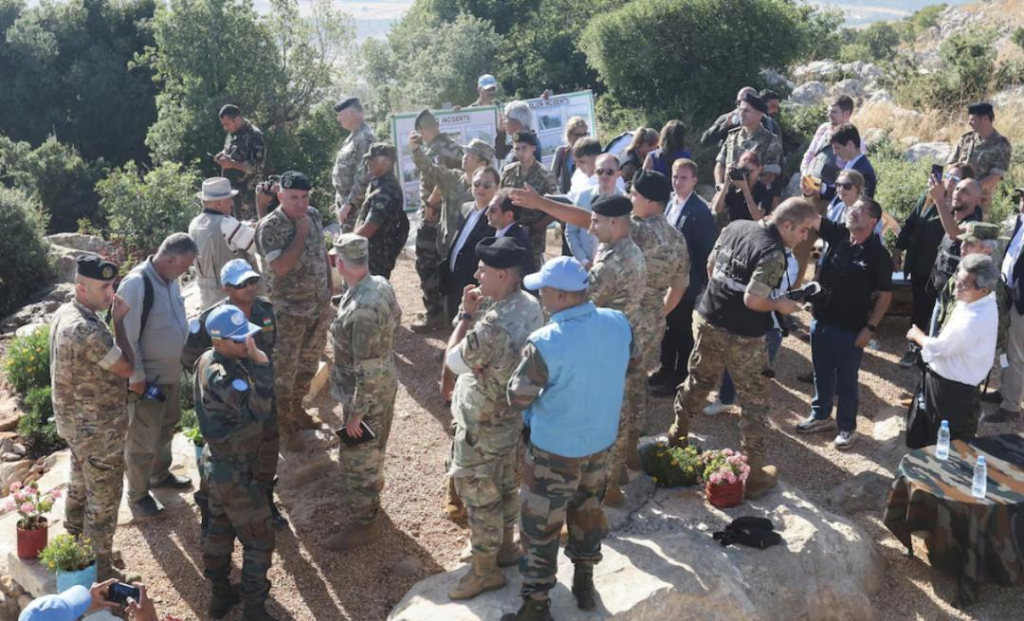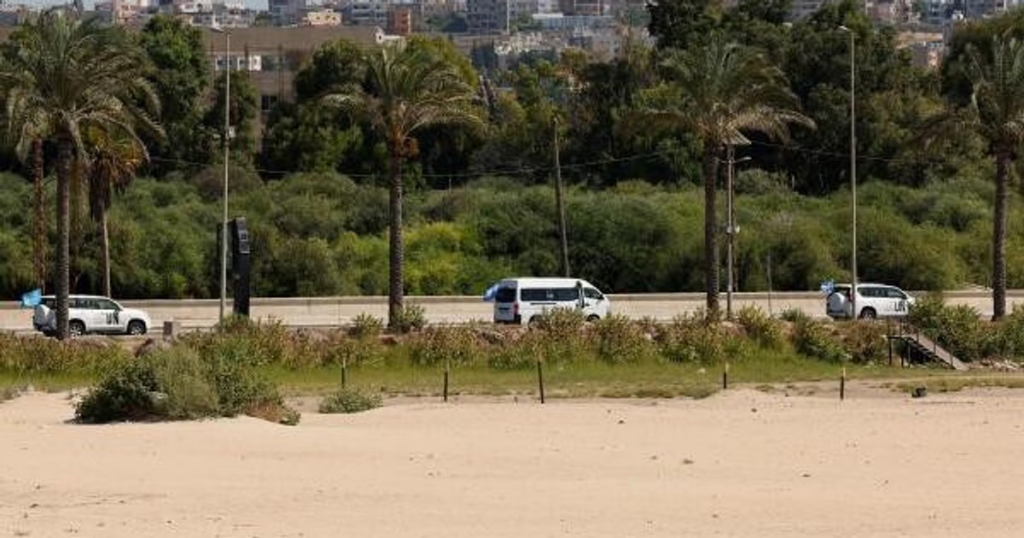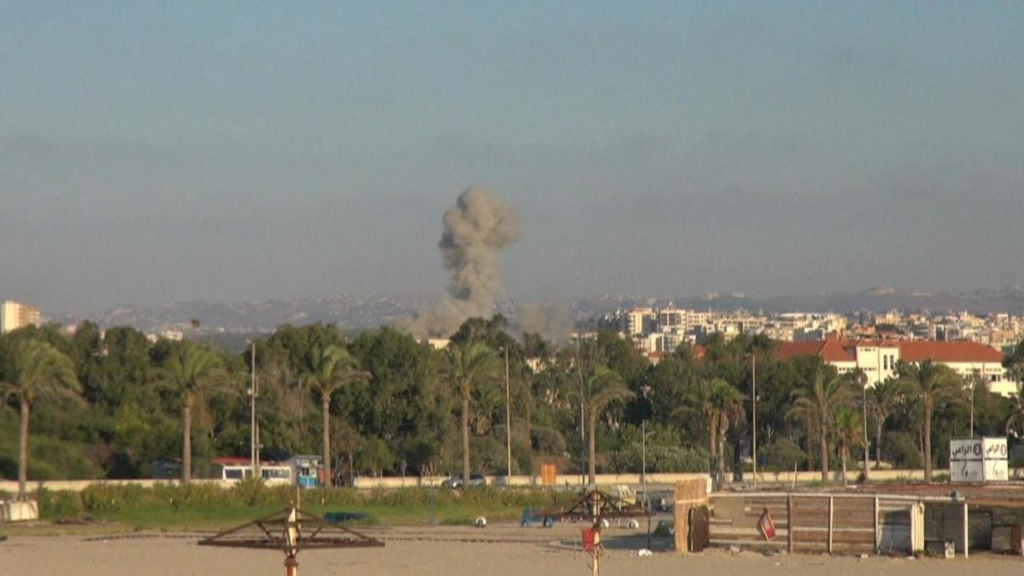The United Nations Interim Force in Lebanon (UNIFIL) is facing increased tensions as Israel continues its military operations near the southern border of Lebanon. In response to Israeli ground incursions, the UN mission in Lebanon, created to oversee peace and ensure stability, has announced that it will not vacate its positions, despite Israel’s request for relocation.
This decision by the UN mission in Lebanon underscores the force’s commitment to its peacekeeping mandate and its role in maintaining communication between the conflicting parties.
UNIFIL’s Role and Response
The UN mission in Lebanon was established in 1978, initially tasked with overseeing the withdrawal of Israeli troops after their invasion of southern Lebanon. Over the decades, especially following the 2006 war between Israel and Hezbollah, UNIFIL’s responsibilities have expanded.
Read : Man Who Became Infamous for Waving Bloodied Hands After Killing 2 Israeli Soldiers Killed in Gaza
Today, the UN mission in Lebanon works along the Israeli border to maintain peace, prevent conflict, and protect local populations. The mission also functions as a communication channel between Israel, Hezbollah, and Lebanon’s military, making it indispensable in a region prone to hostilities.
Read : Hezbollah Fires Over 200 Rockets Into Israel to Avenge Strike That Killed Senior Commander: Watch
In late September, Israel requested that the UN mission in Lebanon relocate some of its peacekeepers due to planned military incursions. Despite the increasing military tension, the UN mission in Lebanon refused to abandon its positions, stating that the UN flag would continue to fly.
This decision comes at a time when Israeli forces have escalated their operations, launching targeted ground actions in southern Lebanon, primarily against Hezbollah militants.
Israel’s Requests and UN’s Response
On September 30, the Israeli military informed the UN mission in Lebanon of its plans to undertake limited ground incursions and requested that UNIFIL relocate from certain areas. However, the peacekeeping mission remained firm.
According to a statement from the UN, the peacekeepers “remain in all positions” and continue their operations, which include maintaining contact with both Israeli and Lebanese military officials.
The UN mission in Lebanon plays a critical role in de-escalating potential conflicts and ensuring the safety of its 10,000 peacekeepers, who are stationed throughout the southern region of Lebanon.

Jean-Pierre Lacroix, the UN Under-Secretary-General for Peace Operations, emphasized the importance of the UN mission in Lebanon as the sole communication channel between the involved parties. He noted that while the situation remains tense, the UN mission in Lebanon has contingency plans in place should the need arise.
Lacroix also acknowledged that the mission has reduced patrols and the number of deployed personnel by around 20% in some areas. Despite these reductions, the UN mission in Lebanon maintains a strong presence to help civilians affected by the conflict.
The Growing Tensions Between Israel and Hezbollah
Israel’s ongoing military actions against Hezbollah, which escalated earlier this week with a ground invasion into southern Lebanon, have added new layers of complexity to the mission of UNIFIL.
Hezbollah, an Iranian-backed militant group, has been engaged in hostilities with Israel for decades, and the tensions have only grown in recent months. The UN mission in Lebanon is critical to mitigating the violence that often flares up along the Lebanese-Israeli border, acting as a stabilizing force in the volatile region.
Despite Israel’s ground incursions and its requests for the UN to vacate, the UN mission in Lebanon remains steadfast. The peacekeepers continue to occupy strategic positions along the border, working to prevent military clashes between Hezbollah and Israeli forces.
While tensions are high, the UN mission in Lebanon is closely monitoring the situation, providing aid where possible, and ensuring that open lines of communication are maintained between the opposing forces.

As part of its ongoing mandate, the UN mission in Lebanon has been involved in coordinating humanitarian assistance to civilians in southern Lebanon, where the brunt of the conflict is felt.
The mission’s efforts to protect vulnerable populations are a testament to its broader peacekeeping objectives, ensuring that military conflicts do not worsen the already difficult conditions for the people living near the border.
UNIFIL’s Future and Security Concerns
One of the most significant concerns for the UN mission in Lebanon is the safety of its peacekeepers. With Israel’s military operations now underway in southern Lebanon, the potential for direct conflict between Israeli forces and UN personnel is high.
Lacroix has stressed that both Israel and Hezbollah are obligated to protect the UN peacekeepers and avoid any actions that could endanger their lives. This protection is crucial, as the UN mission in Lebanon works tirelessly to de-escalate violence and maintain peace.
At present, the UN mission in Lebanon is not conducting its regular patrols, a precaution taken to ensure the safety of its personnel amid the escalating conflict. Instead, the peacekeepers remain stationed in their positions, prepared to act if the situation worsens.
Lacroix also revealed that the UN mission in Lebanon is constantly reviewing the ground situation to adapt to the evolving security landscape. The mission’s contingency plans are in place should the need for evacuation or repositioning arise, though such details remain confidential.
As Israeli forces continue their operations and Hezbollah responds, the role of the UN mission in Lebanon will become even more critical. UNIFIL’s presence not only serves as a deterrent to further escalations but also as a crucial intermediary in the ongoing conflict.
Both Israel and Hezbollah have recognized the value of maintaining communication through the UN mission in Lebanon, which remains the only official channel between the two adversaries.

The UN mission in Lebanon stands firm in its decision not to vacate its positions despite Israeli requests. With tensions rising and military operations underway, the UN peacekeeping force plays a vital role in maintaining peace, protecting civilians, and serving as a communication link between Israel, Hezbollah, and the Lebanese military.
The mission’s unwavering presence in southern Lebanon continues to offer a beacon of hope for stability in a region long marred by conflict.
As the situation continues to develop, the UN mission in Lebanon will be closely watched. Its ability to navigate the challenges posed by both Israeli and Hezbollah forces will determine not only the future of peacekeeping in the region but also the safety of civilians caught in the crossfire.
Through its efforts, the UN mission in Lebanon aims to fulfill its mandate of maintaining peace and protecting vulnerable populations.

